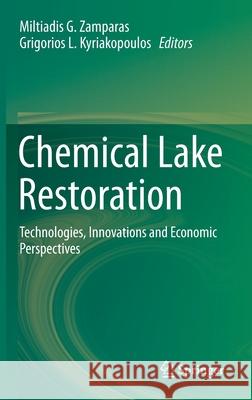Chemical Lake Restoration: Technologies, Innovations and Economic Perspectives » książka
topmenu
Chemical Lake Restoration: Technologies, Innovations and Economic Perspectives
ISBN-13: 9783030763794 / Angielski / Twarda / 2021 / 209 str.
Kategorie:
Kategorie BISAC:
Wydawca:
Springer
Język:
Angielski
ISBN-13:
9783030763794
Rok wydania:
2021
Wydanie:
2021
Ilość stron:
209
Waga:
0.48 kg
Wymiary:
23.39 x 15.6 x 1.42
Oprawa:
Twarda
Wolumenów:
01
Dodatkowe informacje:
Wydanie ilustrowane











